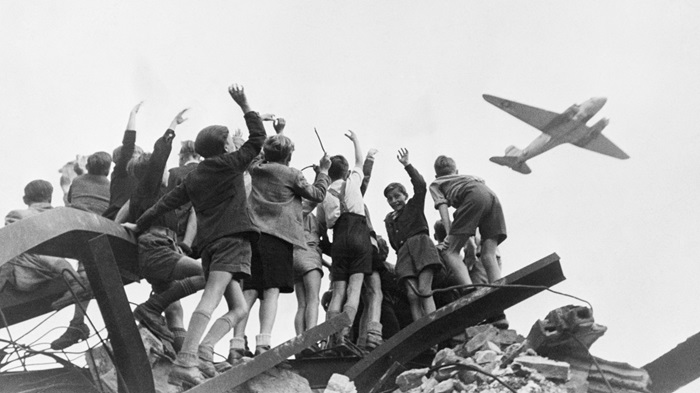May 12 is a date enshrined in the annals of history for its myriad of significant events that have shaped the course of human civilization. From political upheavals to scientific breakthroughs, from cultural milestones to tragic disasters, this date bears witness to the rich tapestry of human experience. In this article, we embark on a journey through time, exploring some of the most notable occurrences that have occurred on May 12 throughout history.
1926: The General Strike Begins in the United Kingdom
On May 12, 1926, one of the most significant industrial disputes in British history commenced—the General Strike. Triggered by the mine owners’ decision to reduce miners’ wages and increase their working hours, the strike quickly escalated into a nationwide confrontation between trade unions and the government. Over the course of nine days, millions of workers across various industries, including transportation, manufacturing, and utilities, joined the strike in solidarity with the miners. The General Strike ultimately ended in defeat for the workers, but it marked a pivotal moment in British labor history, highlighting the power of collective action and the enduring struggle for workers’ rights.
1932: The Bodyline Scandal Rocks Cricket
May 12, 1932, witnessed the eruption of controversy in the world of cricket with the infamous “Bodyline” series between England and Australia. Seeking to counter the dominance of the Australian batsman Don Bradman, the English cricket team employed a controversial tactic known as “Bodyline,” which involved bowlers deliberately aiming the ball at the batsman’s body. The aggressive and potentially dangerous strategy sparked outrage in Australia and strained diplomatic relations between the two countries. The Bodyline scandal not only changed the course of cricket history but also raised ethical questions about sportsmanship and fair play that continue to resonate to this day.
1949: The Berlin Blockade Begins
The geopolitical tensions of the Cold War came to a head on May 12, 1949, with the onset of the Berlin Blockade. In response to the introduction of the Deutsche Mark in West Berlin, the Soviet Union blockaded all land and water routes to the city, effectively cutting off its access to essential supplies. The blockade precipitated a massive humanitarian crisis, as the Western allies launched a monumental airlift operation to sustain the beleaguered population of West Berlin. Lasting for 11 months, the Berlin Airlift showcased the resolve of the Western powers in the face of Soviet aggression and reinforced the division of Germany into East and West, setting the stage for decades of Cold War confrontation.
2008: Sichuan Earthquake Devastates China
On May 12, 2008, a catastrophic earthquake struck the Sichuan province of China, leaving a trail of destruction and loss in its wake. With a magnitude of 7.9, the earthquake caused extensive damage to infrastructure, homes, and schools, resulting in the deaths of nearly 70,000 people and injuring hundreds of thousands more. The disaster prompted an outpouring of grief and solidarity both within China and across the international community, as rescue efforts mobilized to assist the affected regions. The Sichuan earthquake served as a stark reminder of the devastating power of natural disasters and underscored the importance of disaster preparedness and response in mitigating their impact.
1364: Jagiellonian University Established in Kraków
On May 12, 1364, King Casimir III the Great of Poland established the Jagiellonian University in Kraków, making it one of the oldest universities in the world. Named after the ruling dynasty of Poland at the time, the university played a crucial role in the intellectual and cultural life of medieval Europe. Over the centuries, it would become a center of learning, attracting scholars and students from across the continent and making lasting contributions to fields ranging from philosophy and theology to mathematics and astronomy.
1551: The National University of San Marcos Founded in Lima
In the New World, May 12, 1551, marked the foundation of the National University of San Marcos in Lima, Peru. Established by a royal decree issued by King Charles V of Spain, San Marcos is the oldest university in the Americas. Initially conceived as a center for the education of Catholic priests, it evolved into a prestigious institution that played a pivotal role in the intellectual and cultural development of Latin America.
1926: The May 12 Incident in Shanghai
Moving forward to the 20th century, May 12, 1926, witnessed the outbreak of the May 12 Incident in Shanghai, China. This violent clash between Chinese workers and British police forces resulted in numerous casualties and marked a significant escalation in tensions between Chinese nationalists and foreign powers in the city. The incident highlighted the growing anti-imperialist sentiment in China and foreshadowed the intensification of conflicts that would ultimately lead to the Chinese Civil War and the establishment of the People’s Republic of China.
Conclusion
May 12 stands as a testament to the complexity and diversity of human history, encompassing triumphs and tragedies, conflicts and collaborations. From labor struggles to sporting controversies, from geopolitical crises to natural disasters, the events that have unfolded on this date reflect the enduring struggle for justice, progress, and resilience in the face of adversity. As we reflect on the significance of May 12 in history, we are reminded of the indomitable spirit of humanity and the interconnectedness of our shared past.

